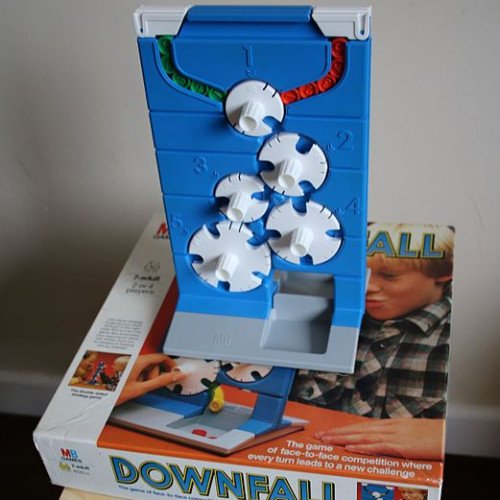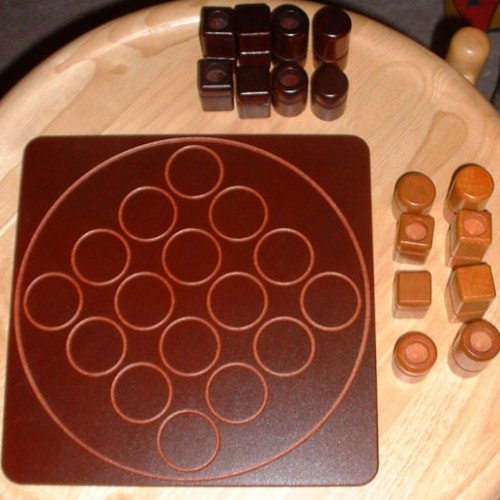DOWNFALL VS QUARTO

DOWNFALL
Downfall is a two-player game for players aged 7 and older, first marketed by the Milton Bradley Company in 1970. The game consists of a vertical board with five slotted dials on each side. Each player starts with ten numbered tokens or discs at the top of the board. The object of the game is to move the discs to the bottom of the board by turning the dials. Players alternate turns moving the dials and cannot move a dial that their opponent has just moved. The winner is the first player to move all of their discs into the tray at the bottom. An advanced version of the rules dictates that the discs arrive in the tray in numerical order. Since neither player can see the other's board, it is common to inadvertently advance - or hinder - the opponent's gameplay. The game rewards forward thinking and planning; players may try to "trap" their opponent into turning a dial that will advance their own disc, while trying to ensure that their own discs are not caught and dropped out of order. The game is currently available in the UK under the name New Downfall, manufactured and marketed by Hasbro. The new version follows the same rules but has a more futuristic design in red and yellow. The game's box art is parodied on the cover of Expert Knob Twiddlers, an album by Mike & Rich (Mike Paradinas & Richard D. James).
Statistics for this Xoptio

QUARTO
Quarto is a board game for two players invented by Swiss mathematician Blaise Müller. It is published and copyrighted by Gigamic. The game is played on a 4×4 board. There are 16 unique pieces to play with, each of which is either: tall or short; red or blue (or a different pair of colors, e.g. light- or dark-stained wood); square or circular; and hollow-top or solid-top. Players take turns choosing a piece which the other player must then place on the board. A player wins by placing a piece on the board which forms a horizontal, vertical, or diagonal row of four pieces, all of which have a common attribute (all short, all circular, etc.). A variant rule included in many editions gives a second way to win by placing four matching pieces in a 2×2 square. Quarto is distinctive in that there is only one set of common pieces, rather than a set for one player and a different set for the other. It is therefore an impartial game.